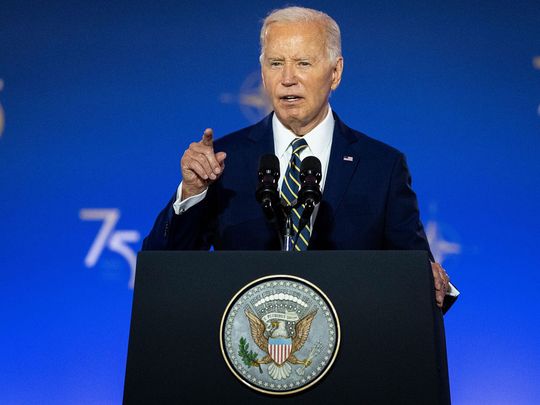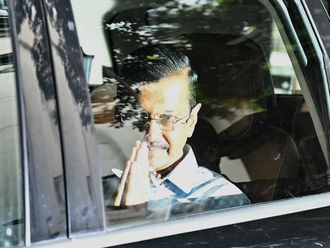
For the first time in a quarter of a century, Washington D.C., the capital of the United States, is hosting the North Atlantic Treaty Organisation (Nato) summit. The event assumes added significance because this is the 75th anniversary of Nato
Founded on 4 April 1949, Nato is a military and political alliance that emerged after the end of World War II. It had twelve founding members, ten from Europe and two from North America.
Today, that number has swelled to thirty-two. Given that the two North American members, the US and Canada remain constant, Nato has added twenty more members from Europe. An expanding Nato, as some would put it, encircling the wounded Russian bear?
That, in a nutshell, leads directly to the biggest challenge facing Nato in decades, which is also expected to be the focal point of the 2024 summit. The ongoing war in Ukraine. Nato, naturally, is expected to take a strong position condemning Russia and supporting Ukraine during the summit.
The costly war in Ukraine has been a source of global tension, with far-reaching implications for international security and economic stability.
Read more by Prof Makarand R. Paranjape
Calling for dialogue
The conflict has drawn sharp lines between Russia and the West, with sanctions and counter-sanctions affecting economies worldwide. India’s position on the war has been one of cautious neutrality, calling for dialogue and a peaceful resolution whilst abstaining from condemning Russia’s actions outright.
Informed sources indicate that Nato is likely to extend membership to Ukraine.
As major international leaders from member countries, along with thousands of support staff and the press descend on DC, the summit will also turn the spotlight on President Joe Biden’s leadership during a crucial election year.
Despite all the coaching and propping, Biden has been captured in dozens of videos somewhat disoriented and incoherent. Not quite at his best, to put it bluntly.
The American public and the world will be watching carefully if he — and the United States — can still lead the free world. His challenger, former President Donald Trump, on the other hand, has seldom concealed his disappointment with Nato
As the world’s eyes turn to the Nato summit in Washington, D.C., another significant political manoeuvre is also unfolding simultaneously. Indian Prime Minister Narendra Modi is on an official visit to Russia for a summit meeting with President Vladimir Putin.
Modi doctrine
This concurrence can hardly be scheduling coincidence. Rather, it represents a profound assertion of India’s emerging role as a pivotal player in international politics.
India, traditionally non-aligned, finds itself in a unique position. It is a nation that has fostered strong ties with both Russia and the West. Modi’s visit to Russia, particularly at a time when the Nato summit is addressing pressing global security concerns, including Russia’s actions in Ukraine, is indicative of India’s balancing power dynamics under what has been termed the “Modi doctrine” in its foreign policy.
The West has reacted cautiously to Modi’s Russia visit, calling India an important friend and ally.
India’s relationship with Russia has historical roots that date back to the Cold War era. Despite the dissolution of the Soviet Union, the camaraderie has persisted, with India being a significant consumer of Russian military hardware and an ally in international forums.
India has also benefited by cheap Russian oil after the West’s embargo. But India’s relations with Western nations, especially the United States, have also strengthened over the years, with shared democratic values and mutual concerns about a rising China in the Asia-Pacific region.
The silver lining in India’s gambit is that it might serve as a golden opportunity for Modi as global peacemaker.
If he can leverage his country’s long-standing relationship with Russia and its growing clout with the West to try to mediate a resolution to the conflict in Ukraine, it would be a great diplomatic victory.








_resources1_16a45059ca3_small.jpg)

